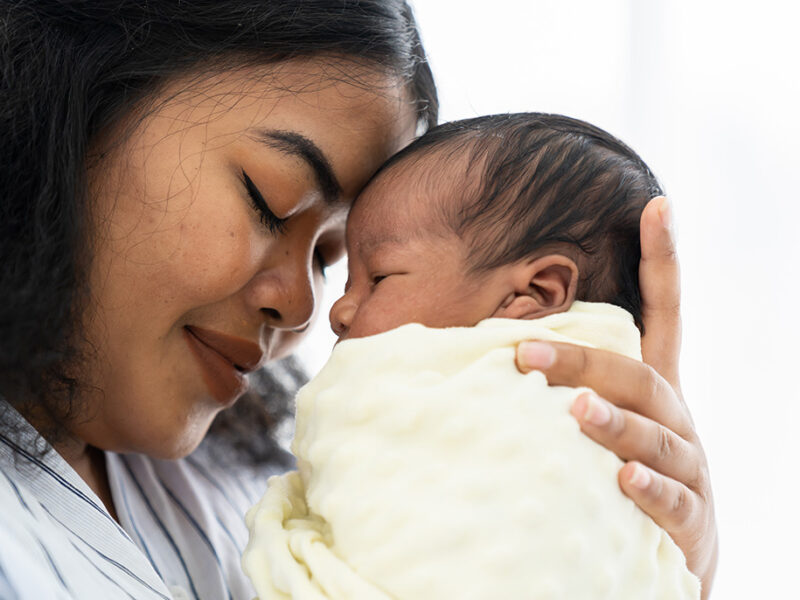Fertility-Related Care for Girls With Turner Syndrome
Fertility-Related Care for Girls With Turner Syndrome https://pediatricsnationwide.org/wp-content/themes/corpus/images/empty/thumbnail.jpg 150 150 Mary Bates, PhD Mary Bates, PhD https://secure.gravatar.com/avatar/d8c01b42dd4f98ebe33b59a37151ffdb0226803d9094f30793729669defbdf99?s=96&d=mm&r=gRecent survey of providers shows fertility counseling and referrals are delivered inconsistently in this population.
Researchers from Nationwide Children’s recently assessed practices surrounding fertility-related care among clinical providers who treat girls with Turner syndrome. They found that fertility counseling and referral rates remain inconsistent and identified common barriers to fertility care in this population.
Turner syndrome is a common chromosome disorder characterized by a missing or abnormal second sex chromosome. One of the major health implications of Turner syndrome is fertility impairment.

Leena Nahata, MD
“As we’ve learned more about fertility in other populations, particularly pediatric cancer survivors, we’ve come to appreciate the psychosocial distress associated with fertility impairment,” says Leena Nahata, MD, a pediatric endocrinologist and founder and medical director of the Fertility and Reproductive Health Program at Nationwide Children’s. “Although there are guidelines for clinicians to discuss fertility and reproductive health care with youth with Turner syndrome early on, there has not been a lot of research examining actual practices.”
In the new study, Dr. Nahata and colleagues report the results of a national survey (via the Pediatric Endocrine Society listserv) assessing fertility counseling practices for girls with Turner syndrome among pediatric endocrinology providers.
Overall, nearly one-third of providers said they do not routinely discuss fertility with their pediatric Turner syndrome patients and families. Furthermore, there were differences between fertility referrals for girls with Turner syndrome with spontaneous menarche and those without spontaneous menarche: Approximately half of providers consistently refer patients with spontaneous menarche to fertility preservation specialists, while less than 20% refer patients without spontaneous menarche to specialists. Pregnancy related counseling is also inconsistent.
Barriers associated with fertility preservation referral frequency included unfamiliarity with fertility preservation options, belief that fertility preservation was not a possibility for their patients, and absence of a local reproductive endocrinologist to which to refer patients. In addition, some providers reported a lack of perceived interest among patients and families.
The researchers say that future research should focus on expanding provider education, addressing logistical barriers to fertility counseling and referrals, and investigating fertility preservation outcomes in girls with Turner syndrome.
To address a perceived lack of interest among patients and families, Dr. Nahata suggests having an in-depth conversation about fertility that puts the issue into context.
“In the cancer setting, we preface this conversation by acknowledging that this is a difficult time to be thinking about a child’s potential future fertility,” says Dr. Nahata, who is also an associate professor of clinical pediatrics at The Ohio State University College of Medicine.
“For patients with Turner syndrome and their families, it is important to have these discussions early. There is often a shortened window of opportunity to be considering fertility-related interventions for these girls. We need to start these tailored conversations early – acknowledging infertility risk, what fertility preservation options may or may not be available, and addressing other important reproductive health considerations such as hereditary transmission and pregnancy related risks – and have them on an ongoing basis across ages/developmental stages.”
Reference:
Theroux CI, Elliott V, Davis S, Crerand CE, Kremen J, Tishelman A, Hutaff-Lee C, Nahata L. Fertility Counseling Practices for Patients with Turner Syndrome in Pediatric Endocrine Clinics: Results of a Pediatric Endocrine Society Survey. Horm Res Paediatr. 2022;95(4):321-330. doi: 10.1159/000524573. Epub 2022 Apr 12.
Image credit: Nationwide Children’s
About the author
Mary a freelance science writer and blogger based in Boston. Her favorite topics include biology, psychology, neuroscience, ecology, and animal behavior. She has a BA in Biology-Psychology with a minor in English from Skidmore College in Saratoga Springs, NY, and a PhD from Brown University, where she researched bat echolocation and bullfrog chorusing.
- Mary Bates, PhDhttps://pediatricsnationwide.org/author/mary-bates-phd/December 27, 2016
- Mary Bates, PhDhttps://pediatricsnationwide.org/author/mary-bates-phd/
- Mary Bates, PhDhttps://pediatricsnationwide.org/author/mary-bates-phd/
- Mary Bates, PhDhttps://pediatricsnationwide.org/author/mary-bates-phd/
- Posted In:
- Clinical Updates
- In Brief
- Research






